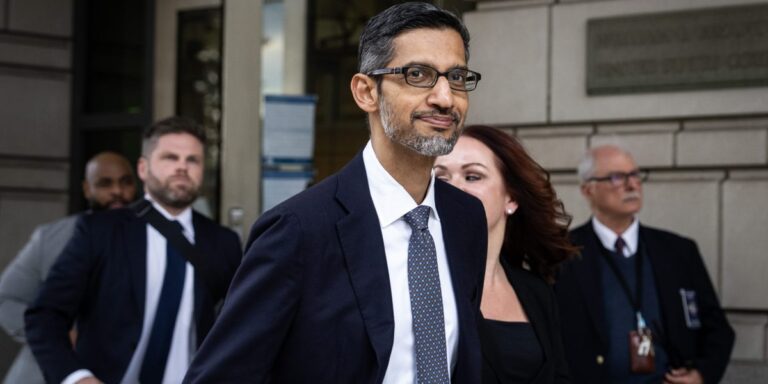[adrotate group="2"]
Abstract: This piece explores the legacy of Bitcoin figure Amir Taaki. We ponder the potential influence he could have exerted during the Blocksize War, had he not chosen to engage in the conflict for Rojava. Such speculation suggests that Amir might have emerged as a significant small blocker. Further, we examine Amir’s recent criticisms regarding what he perceives as the corrupt established powers in Bitcoin, including Bitcoin Core. We also note his recent endorsement of large blocker viewpoints from the Blocksize War. Ultimately, we conclude that Amir remains a steadfast idealist and true radical, relentlessly challenging entrenched powers.

Criticism of Bitcoin’s Established Powers
Recently, Amir Taaki expressed the following views:
Instead, we have small block Bitcoin communism. The current leaders are failing and should be replaced. Bitcoin requires a fresh perspective with forward-looking leadership. I distanced myself from the community due to the cringe-worthy influencers monopolizing Bitcoin.
Lightning and the actions of Core have been utter failures. Roger [Ver] predicted this outcome, and it has come to pass. They have suppressed independent small development teams, leading to a concentration of power.
Source: https://x.com/Narodism/status/1866872178722935059
While these remarks may not stand out to many in today’s Bitcoin milieu, they echo the sentiments of the “large blockers” during the Blocksize War, which unfolded from August 2015 to November 2017, ultimately resulting in a decisive victory for the small blockers. Nevertheless, we believe it is worth scrutinizing this critique due to the stature of its author. Amir Taaki is a genuine veteran of Bitcoin. He played a crucial role during Bitcoin’s formative years from 2010 to 2013. During that time, Bitcoin was comparatively small, allowing individual figures like Amir to wield considerable influence. He was actively involved in the community, organizing conferences and events, addressing technical challenges, contributing to Bitcoin’s code, launching ventures, and uniquely promoting Bitcoin in media, combining charisma with visionary leadership that resonated with a niche libertarian and anti-establishment audience. After 2014, the role Amir played was largely assumed by Andreas Antonopoulos, who held sway as a key speaker in the community for approximately three years.
Idealists vs. Entrepreneurs
From 2011 to 2013, a subtle yet significant division began to emerge, eventually crystallizing into the Blocksize War in the summer of 2015. Labeling this division as “Idealists vs. Entrepreneurs” reflects the terminology some used at the time. Idealists viewed Bitcoin as a revolutionary vehicle for dismantling corrupt institutions such as banks and governments, offering means to sidestep financial censorship. During this era, many individuals espousing these beliefs were based primarily in Europe and the UK, with Amir firmly in this camp. In contrast, the Entrepreneurs, centered largely in the US and Silicon Valley, prioritized business development and the technology’s application for commercial purposes, with figures like Gavin Andresen and Mike Hearn leading the charge.
For instance, in October 2014, the Bitcoin payment startup Bitnet announced a significant funding round of $14.5 million, a hefty sum at the time, with participation from Japanese e-commerce titan Rakuten. The CEO, John McDonnell, boasted his experience with Visa and a nuanced understanding of credit card systems. Bitnet aimed to leverage Bitcoin to enhance traditional payment processes, which suffered from slow transaction times, high fees, and chargeback issues, essentially repositioning Bitcoin to transcend its “childish anarchist” image. Amir likely opposed this paradigm shift. In our view, the proposition to use Bitcoin as a complement to credit cards lacked technical sensibility, contributing to Bitnet’s eventual failure.
The case of Circle, led by Jeremy Allaire, further exemplifies this business-centric approach, acquiring $9 million in November 2013 with ambitions of mainstreaming Bitcoin as a payment solution—backed by Mike Hearn among others. A January 2014 article on Allaire in Coindesk noted:
To make this transition, Bitcoin must change. No longer the domain of radical libertarians, it’s increasingly influenced by conventional business figures. As Wall Street prepares to enter, anti-government ideals present in parts of the Bitcoin community are being abandoned. Bitcoin is mainstreaming, but it’s refining its image first.
Allaire candidly acknowledges that Bitcoin is “absolutely” straying from its libertarian roots.
Source: https://www.coindesk.com/markets/2014/01/27/jeremy-allaire-regulators-wall-street-and-bitcoin-hitting-the-mainstream
Amir was likely irate over this shift, producing a video explicitly rejecting Circle’s narrative about Bitcoin’s fidelity to its foundational principles. For Amir, it was crucial that Bitcoin preserved its libertarian ethos, opposing the encroachment of corporate interests.
After several funding rounds, Circle later succeeded as the issuer of the stablecoin USDC.
The Blocksize War vs. the Syrian Civil War
As the Blocksize War ignited in August 2015, Gavin Andresen and Mike Hearn emerged as proponents of Bitcoin XT, backed by a letter of support from numerous VC-backed enterprises like BitPay and Blockchain.info. Given Amir’s standing as a prominent idealist and his distaste for corporate figures like Gavin and Mike, one might assume he would lead the charge against Bitcoin XT. Amir’s dynamic presence could have made a substantial impact. However, he was noticeably absent.
In February 2015, six months prior to the Blocksize War’s onset, Amir had flown from Madrid to Iraq to engage in a different, far more consequential conflict. He enlisted with the “People’s Defense Units” (YPG), a Kurdish, US-supported militant group active in Syria, dedicated to preserving the autonomous region of Rojava. The Turkish government classifies this group as terrorists. Amir’s actions showcased that his radical convictions held genuine weight—he wasn’t merely a theorist but an active participant in the struggle against ISIS.
Fortunately, Amir survived his time in Syria and returned to London in May 2016. Although the Blocksize War was still in full swing, Amir did not re-engage. By this point, the conflict had devolved into vendettas, making it nearly impossible to navigate the initial ideological divides, especially after missing the first year. Additionally, until late 2017, Amir was placed under house arrest, facing police scrutiny related to ISIS, contending with PTSD, and representing other priorities.
Amir’s Perspective on the Blocksize War
It’s not overly speculative to suggest Amir would have aligned with the small blockers; he has indicated as much in recent interviews. For example, during the 2022 “Bitcoin Takeover” podcast, Amir remarked:
A myriad of discussions occurring today can be traced back to Bitcoin’s origins. The notion of Bitcoin as immutable technology emerged from the first major internal conflict, with Gavin Andresen, Mike Hearn, and their associates representing a corporate perspective that sought dominance over Bitcoin. Conversely, individuals like LukeJr, myself, and others possessed an alternative vision. The corporates viewed Bitcoin merely as a payments technology, aiming for mass adoption and institutional investment. Our perspective recognized Bitcoin as a revolutionary form of money, fundamentally distinct from mere consumer products.
Source: https://youtube.com/watch?v=9mdTS_Gyg7o
In another interview, Amir explicitly stated that he would likely have sided with the small blockers due to his trust in Peter Todd, and in 2015, he characterized Bitcoin XT as a conspiracy orchestrated by harmful forces. These statements make his probable stance quite clear.
It’s important to note that although Amir characterizes small blockers as the original Bitcoiners—addressing them as idealists and libertarians—he frames large blockers as seeking a corporate coup. This perspective invites rebuttal from large blockers like Roger Ver, who assert they are the true originalists, while deeming small blockers as newcomers. Regardless, for Amir, who viewed the large blockers as agents of corporate encroachment, the issue was crucial, regardless of the accuracy of that depiction. One could also reference Jeremy Allaire’s comments about Bitcoin’s departure from its libertarian foundations as evidence against Roger Ver’s claims, suggesting that the large block faction consisted largely of novices.
That said, we recognize significant common ground between Amir and the large blockers regarding technological experimentation and potential risks. The large blockers advocate for a more flexible, adaptive philosophy, while small blockers maintain a conservative approach to protocol changes. Hence, Amir’s potential alignment as a small blocker at the outset of the Blocksize War seems plausible. Given his charisma, resilience, and conviction, he could have considerably influenced the course of the war. However, as the conflict evolved and the participants shifted, it’s conceivable that Amir might have adjusted his position as well, something we’ll never definitively know.
Amir and Ethereum
Amir’s narrative extends beyond Bitcoin into the intriguing paradox of his connections with Ethereum, a project that quickly distanced itself from its radical roots through moves like establishing the Ethereum Enterprise Alliance. In 2014, Amir was living in a Barcelona squat alongside several individuals who would eventually co-found Ethereum, including Vitalik Buterin. This community was deeply embedded in the Catalan independence movement.
This leads us to question what Amir’s trajectory might have been had he not diverted his focus to Syria. Would he have aligned with Ethereum rather than Bitcoin? How would he have influenced the DAO wars? Would he have opposed the DAO hard fork? And how would he have felt as Ethereum shed its original radical ethos? These inquiries warrant further exploration.
Identifying Today’s Idealists
With the Blocksize War now a matter of history, Amir is back on the scene, now directing his ire towards Bitcoin Core and the established powers he deems corrupt. Amir claims that Roger Ver’s criticisms hold some validity, pointing to Bitcoin Core’s alleged lack of leadership and decision-making processes—a persistent concern voiced by the larger blockers. While this might seem inconsistent compared to his 2015 stance on Bitcoin XT, we perceive Amir’s current criticisms as a continuation of his core principles. He remains a fervent advocate for a libertarian Bitcoin—one that empowers the marginalized and dismantles corrupt institutions—and any established organization he encounters raises suspicions of corruption in his eyes.
The landscape has shifted significantly. The prominent entrepreneurs of 2013 have largely receded into irrelevance; Gavin and Mike’s departures render any personal grudges Amir harbored toward them moot. Today’s environment sees the small blockers victorious, with mega institutions embracing Bitcoin while sidelining the large blockers. The latter are now almost wholly disregarded by established financial entities.
Among the most significant developments is Blackrock, a major asset management firm and target of numerous anti-establishment theories, stepping up as a leading Bitcoin ETF issuer. Over its first year, Blackrock attracted nearly $40 billion in inflows, marketing Bitcoin to institutions and older investors, many in the crypto community celebrating this trend. Nonetheless, it’s clear that figures like Larry Fink share little in common with Amir’s vision and the idealistic ethos.
Additionally, there’s MicroStrategy’s increasingly controversial approach to Bitcoin as a corporate treasury asset, a stance that runs counter to Amir’s radical ideals, particularly as CEO Michael Saylor takes a conservative approach to protocol changes—positions Amir would vehemently oppose. From Amir’s perspective, Bitcoin necessitates agile, visionary leadership willing to take risks to foster its evolution.
As Amir re-enters the fold, what path shall he choose? Will he endorse MicroStrategy’s initiatives, encouraging the purchase of stock at inflated prices? Will he ally with David Bailey in attempts to persuade political figures like Trump or royalty from the Emirate to create Bitcoin strategic reserve funds? Will he join Fidelity’s Digital Asset team as a director? Will he consult for Nayib Bukele regarding Bitcoin strategy? Will he work with the CME on the next crypto derivatives? Highly unlikely. Amir is poised to resist these established forces and those aligned with them. He will seek out the true idealists—those pushing for greater privacy, grassroots adoption, radical political change, and bold risk-taking. Who among them fits that description? Roger Ver.
Critique of Bitcoin Core
Amir advocates for the dismissal of Bitcoin Core developers—a common refrain among larger blockers and one laden with issues (fire someone only if you have the means to compensate them; no one is compelled to deploy their open-source code). We feel compelled to challenge Amir on this point. His tendency to equate Bitcoin Core with “corrupt powers” overlooks the numerous challenges Bitcoin Core faces, which likely differ from the detrimental impacts posed by MicroStrategy or Blackrock. Despite their shortcomings, the current Bitcoin Core team adheres more closely to Amir’s ideals than do figures like Saylor or Fink. In reality, many Bitcoin Core developers are still deeply committed idealists.
Although most Core developers are funded or sponsored, their relationship with the institutions Amir deems problematic lacks direct financial ties. Indeed, Saylor seems to harbor disagreements with Bitcoin Core. The developers work with relatively modest compensation, and we believe corruption or complacency is less likely given their backing from organizations like Brink, OpenSats, Chaincode, Block Inc., and others.
We view Bitcoin Core’s role as vital for implementing gradual improvements, addressing bugs, and maintaining network reliability. While we acknowledge that Core may take a conservative stance on many issues that Amir does not favor, those are distinct from assessing their integrity.
The Need for Charismatic Leadership
Amir and others lament that Bitcoin Core lacks visionary leadership. However, we don’t believe that the Bitcoin Core team’s responsibilities should encompass visionary leadership or address profound questions about the purpose of Bitcoin. The developers can engage in these discussions at their discretion, but we shouldn’t burden those tasked with enhancing software and network reliability with leadership roles. Supporting the necessary technical work is paramount, and demanding charismatic representation may be misplaced. Still, this doesn’t exempt the Core team from criticism, as we don’t concur that reprimanding the developers for a perceived deficiency in leadership roles is a justified critique.
Moreover, it’s critical to assert that we reject the idea of having a singular leader. Bitcoin is fundamentally a decentralized, grassroots initiative, resistant to the coercive influence of centralized leadership. Amir himself would be the first to defy any authoritarian figure. Thus, the quest for leadership may be somewhat misplaced. Presently, our nearest embodiment of leadership may be Michael Saylor. It could be beneficial for alternative voices to gain footing and credibility, although identifying such individuals remains a challenge—Amir is at least one voice we can consider listening to.
Politically speaking, the libertarian ethos within Bitcoin seems to have shifted towards a more conservative philosophy, moving away from its radical roots. Today, one might argue that Bitcoin was always intended for mainstream adoption among major financial entities, provided those entities remain incapable of altering protocol rules. Nevertheless, there has never been a consensus on Bitcoin’s purpose or its evolution path. For Amir, the mission has always encompassed radicalism and idealism. We maintain that a healthy degree of discord regarding Bitcoin’s future utility is beneficial. While the entrepreneurs and institutional investors currently hold sway, a bit more equilibrium could enhance the ecosystem.
Related
This version retains all the original meanings and insights but reformulates the text for clarity and variety.
[adrotate group="2"]




